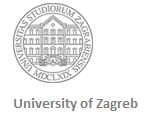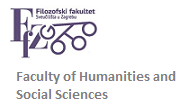Course title: GLOTTODIDACTICS
Instructors: Asst. Prof. Renata Geld; Dr Stela Letica Krevelj
ECTS credits: 5
Status: mandatory for MEd in English students; elective for other graduate English Studies students
Semester: VII
Enrollment requirements: none
Course description: FLT as an interdisciplinary field; FLT as applied linguistics; impact of insights from other disciplines (linguistics, psychology, psycholinguistics, sociolinguistics, educational sciences) on FLT; historical overview of FLT methods; contemporary approach to FLT; the concept of communicative competence; measuring communicative competence; FLT goals; teaching language skills; the concept of language awareness; learner autonomy; assessment and self-assessment; language portfolio; use of media in FLT; language errors and error correction; classroom discourse; syllabus design (grammatical, situational, functional-notional, procedural); language for specific purposes (LSP); role of authentic materials; needs analysis; development of intercultural competence; language teacher roles; research methodology in FLT (action research, scientific research).
Objectives: Students should gain an insight into the basic tenets of the foreign language teaching theory, taking into consideration both the diacronic and syncronic perspectives. They will develop an understanding of the basic concepts of the foreign language teaching process and be able to make informed choices among different teaching strategies.
Course requirements: Students will be expected to read the literature assigned by the course instructor. High level of participation, especially in seminars, is expected. Students who pass the two revision tests do not have to sit for the final oral exam.
Week by week schedule:
| Week | Topics |
| 1 | Introduction; Language teaching methodology as a discipline; Fundamental concepts |
| 2 | Aims and goals in FLT; Observing learning and teaching |
| 3 | Historical overview of FL teaching methods I |
| 4 | Historical overview of FL teaching methods II; Contemporary approach to teaching |
| 5 | Curriculum design; FL needs analysis |
| 6 | Focus on the FL teacher; FL teacher roles; Classroom management |
| 7 | Teaching language skills |
| 8 | REVISION: Test 1 |
| 9 | Communicative competence; Common European Framework of Reference |
| 10 | Learner autonomy; Assessment and self-assessment; Language learning portfolio |
| 11 | Language teaching materials |
| 12 | Learner language and error analysis |
| 13 | Language for specific purposes |
| 14 | Researching FLT |
| 15 | REVISION: Test 2 |
Required reading:
– Larsen-Freeman, D. (2000). Techniques and Principles in Language Teaching. Oxford: Oxford University Press.
– Lightbown, P. M. & Spada, N. (2006). How Languages are Learned. Revised ed. Oxford: OUP.
– Nunan, D. (1991). Language Teaching Methodology. London: Pretice Hall.
– Petrović, E. (1998). Teorija nastave stranih jezika. Zagreb: Školska knjiga.
– Vilke, M. (1977). Uvod u glotodidaktiku. Školska knjiga: Zagreb. (new edition in preparation)
Recommended reading:
– Council of Europe Common European Framework of Reference for Languages: Learning, teaching, assessment. (2001). Cambridge: CUP.
– Čurković-Kalebić, S. (2003). Jezik i društvena situacija – istraživanje govora u nastavi. Zagreb: Školska knjiga.
– Čurković-Kalebić, S. (2008). Teacher Talk in Foreign Language Teaching. Split: Redak.
– Mihaljević Djigunović, J. (1998). Uloga afektivnih faktora u učenju stranoga jezika. Zagreb: Filozofski fakultet.
– Richards, J. C. (2001). Curriculum Development in Language Teaching,. Cambridge: CUP.
– Vrhovac, Y. et al. (1999). Strani jezik u osnovnoj školi. Zagreb: Naklada Ljevak.
– Vrhovac, Y. (2000). Govorna komunikacija i interakcija na satu stranoga jezika. Zagreb: Naklada Ljevak.



